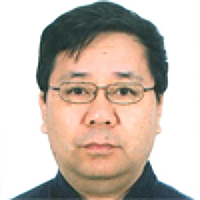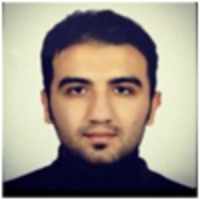Abstract
Review Article
Cleat-surface Interface and Lower Extremity Injuries
Ryann Davie*, Brittany Ammerman and Natalie Pahapill and Karen Sutton
Published: 28 September, 2023 | Volume 8 - Issue 3 | Pages: 047-050
Non-contact injuries with playing surfaces occurring from applied player impact and frictional forces are a major source of lower extremity injuries in competitive sports. Artificial playing surfaces are a common alternative to natural grass surfaces; however, these surfaces are associated with player injury as well. The purpose of this manuscript is to explore the existing literature on the relationship between cleat surface interface and lower extremity injuries in athletes and the importance of proper playing surface conditions alongside proper cleat selection to optimize injury prevention and athletic performance. As artificial turf has become more advanced, studies have shown the rates of lower extremity injuries of the knee, ankle, and foot have decreased to be more similar to the rate of injury on natural grass. However, foot and ankle injury rates remain significantly higher on artificial turf. Furthermore, certain studies continue to demonstrate an increased rate of knee injuries in football players, suggesting that significant performance differences still exist between artificial turf and natural grass. Future studies warrant focusing on ways to improve the cleat-surface interface of new-generation turf, emphasizing proper cleat selection, and playing surface conditions for injury prevention thus optimizing athletic performance.
Read Full Article HTML DOI: 10.29328/journal.jsmt.1001071 Cite this Article Read Full Article PDF
Keywords:
Cleat-surface interface; Lower-extremity injury; Turf; Cleat; Playing surface; Sports injury
References
- Ekstrand J, Nigg BM. Surface-related injuries in soccer. Sports Med. 1989 Jul;8(1):56-62. doi: 10.2165/00007256-198908010-00006. PMID: 2675255.
- Milburn PD, Barry EB. Shoe-surface interaction and the reduction of injury in rugby union. Sports Med. 1998 May;25(5):319-27. doi: 10.2165/00007256-199825050-00003. PMID: 9629610.
- Scranton PE Jr, Whitesel JP, Powell JW, Dormer SG, Heidt RS Jr, Losse G, Cawley PW. A review of selected noncontact anterior cruciate ligament injuries in the National Football League. Foot Ankle Int. 1997 Dec;18(12):772-6. doi: 10.1177/107110079701801204. PMID: 9429878.
- Fleming P. Artificial turf systems for sport surfaces: current knowledge and research needs. Proceedings of the Institution of Mechanical Engineers, Part P: Journal of Sports Engineering and Technology. 2011; 225(2):43-63. doi:10.1177/1754337111401688
- Drakos MC, Taylor SA, Fabricant PD, Haleem AM. Synthetic playing surfaces and athlete health. J Am Acad Orthop Surg. 2013 May;21(5):293-302. doi: 10.5435/JAAOS-21-05-293. PMID: 23637148.
- Wannop JW, Luo G, Stefanyshyn DJ. Footwear traction at different areas on artificial and natural grass fields. Sports Eng. 2012; 15(2):111-116. doi:10.1007/s12283-012-0091-x
- Sinclair J, Hobbs SJ, Taylor PJ, Currigan G, Greenhalgh A. The influence of different force and pressure measuring transducers on lower extremity kinematics measured during running. J Appl Biomech. 2014 Feb;30(1):166-72. doi: 10.1123/jab.2012-0238. PMID: 24676524.
- Andréasson G, Lindenberger U, Renström P, Peterson L. Torque developed at simulated sliding between sport shoes and an artificial turf. Am J Sports Med. 1986 May-Jun;14(3):225-30. doi: 10.1177/036354658601400308. PMID: 3092684.
- Bonstingl RW, Morehouse CA, Niebel BW. Torques developed by different types of shoes on various playing surfaces. Med Sci Sports. 1975 Summer;7(2):127-31. PMID: 807786.
- Torg JS, Quedenfeld TC, Landau S. The shoe-surface interface and its relationship to football knee injuries. J Sports Med. 1974 Sep-Oct;2(5):261-9. doi: 10.1177/036354657400200502. PMID: 4468345.
- Torg JS, Quedenfeld T. Effect of shoe type and cleat length on incidence and severity of knee injuries among high school football players. Res Q. 1971 May;42(2):203-11. PMID: 5282789.
- Livesay GA, Reda DR, Nauman EA. Peak torque and rotational stiffness developed at the shoe-surface interface: the effect of shoe type and playing surface. Am J Sports Med. 2006 Mar;34(3):415-22. doi: 10.1177/0363546505284182. Epub 2006 Jan 6. PMID: 16399930.
- Nigg BM, Segesser B. The influence of playing surfaces on the load on the locomotor system and on football and tennis injuries. Sports Med. 1988 Jun;5(6):375-85. doi: 10.2165/00007256-198805060-00003. PMID: 3135565.
- Cawley PW, Heidt RS Jr, Scranton PE Jr, Losse GM, Howard ME. Physiologic axial load, frictional resistance, and the football shoe-surface interface. Foot Ankle Int. 2003 Jul;24(7):551-6. doi: 10.1177/107110070302400705. PMID: 12921361.
- Villwock MR, Meyer EG, Powell JW, Fouty AJ, Haut RC. Football playing surface and shoe design affect rotational traction. Am J Sports Med. 2009 Mar;37(3):518-25. doi: 10.1177/0363546508328108. Epub 2009 Jan 23. PMID: 19168808.
- McGhie D, Ettema G. Biomechanical analysis of traction at the shoe-surface interface on third-generation artificial turf. Sports Eng. 2013; 16(2):71-80. doi:10.1007/s12283-013-0115-1
- Smeets K, Jacobs P, Hertogs R, Luyckx JP, Innocenti B, Corten K, Ekstrand J, Bellemans J. Torsional injuries of the lower limb: an analysis of the frictional torque between different types of football turf and the shoe outsole. Br J Sports Med. 2012 Dec;46(15):1078-83. doi: 10.1136/bjsports-2012-090938. Epub 2012 Jul 28. PMID: 22842236.
- Queen RM, Charnock BL, Garrett WE Jr, Hardaker WM, Sims EL, Moorman CT 3rd. A comparison of cleat types during two football-specific tasks on FieldTurf. Br J Sports Med. 2008 Apr;42(4):278-84; discussion 284. doi: 10.1136/bjsm.2007.036517. Epub 2007 Aug 23. PMID: 17717058.
- Griffin LY, Agel J, Albohm MJ, Arendt EA, Dick RW, Garrett WE, Garrick JG, Hewett TE, Huston L, Ireland ML, Johnson RJ, Kibler WB, Lephart S, Lewis JL, Lindenfeld TN, Mandelbaum BR, Marchak P, Teitz CC, Wojtys EM. Noncontact anterior cruciate ligament injuries: risk factors and prevention strategies. J Am Acad Orthop Surg. 2000 May-Jun;8(3):141-50. doi: 10.5435/00124635-200005000-00001. PMID: 10874221.
- Gould HP, Lostetter SJ, Samuelson ER, Guyton GP. Lower Extremity Injury Rates on Artificial Turf Versus Natural Grass Playing Surfaces: A Systematic Review. Am J Sports Med. 2023 May;51(6):1615-1621. doi: 10.1177/03635465211069562. Epub 2022 May 20. PMID: 35593739.
- Drakos MC, Hillstrom H, Voos JE, Miller AN, Kraszewski AP, Wickiewicz TL, Warren RF, Allen AA, O'Brien SJ. The effect of the shoe-surface interface in the development of anterior cruciate ligament strain. J Biomech Eng. 2010 Jan;132(1):011003. doi: 10.1115/1.4000118. PMID: 20524741.
- Dragoo JL, Braun HJ. The effect of playing surface on injury rate: a review of the current literature. Sports Med. 2010 Nov 1;40(11):981-90. doi: 10.2165/11535910-000000000-00000. PMID: 20942512.
- Williams S, Hume PA, Kara S. A review of football injuries on third and fourth generation artificial turfs compared with natural turf. Sports Med. 2011 Nov 1;41(11):903-23. doi: 10.2165/11593190-000000000-00000. PMID: 21985213.
- Dragoo JL, Braun HJ, Harris AH. The effect of playing surface on the incidence of ACL injuries in National Collegiate Athletic Association American Football. Knee. 2013 Jun;20(3):191-5. doi: 10.1016/j.knee.2012.07.006. Epub 2012 Aug 21. PMID: 22920310.
- Meyers MC. Incidence, Mechanisms, and Severity of Match-Related Collegiate Men's Soccer Injuries on FieldTurf and Natural Grass Surfaces: A 6-Year Prospective Study. Am J Sports Med. 2017 Mar;45(3):708-718. doi: 10.1177/0363546516671715. Epub 2016 Nov 24. PMID: 27872124.
- Soligard T, Bahr R, Andersen TE. Injury risk on artificial turf and grass in youth tournament football. Scand J Med Sci Sports. 2012 Jun;22(3):356-61. doi: 10.1111/j.1600-0838.2010.01174.x. Epub 2010 Aug 24. PMID: 20738822.
- Ford KR, Manson NA, Evans BJ, Myer GD, Gwin RC, Heidt RS Jr, Hewett TE. Comparison of in-shoe foot loading patterns on natural grass and synthetic turf. J Sci Med Sport. 2006 Dec;9(6):433-40. doi: 10.1016/j.jsams.2006.03.019. Epub 2006 May 2. PMID: 16672191.
- Mack CD, Hershman EB, Anderson RB, Coughlin MJ, McNitt AS, Sendor RR, Kent RW. Higher Rates of Lower Extremity Injury on Synthetic Turf Compared With Natural Turf Among National Football League Athletes: Epidemiologic Confirmation of a Biomechanical Hypothesis. Am J Sports Med. 2019 Jan;47(1):189-196. doi: 10.1177/0363546518808499. Epub 2018 Nov 19. PMID: 30452873.
- Wright JM, Webner D. Playing field issues in sports medicine. Curr Sports Med Rep. 2010 May-Jun;9(3):129-33. doi: 10.1249/JSR.0b013e3181df1179. PMID: 20463494.
- Taylor SA, Fabricant PD, Khair MM, Haleem AM, Drakos MC. A review of synthetic playing surfaces, the shoe-surface interface, and lower extremity injuries in athletes. Phys Sportsmed. 2012 Nov;40(4):66-72. doi: 10.3810/psm.2012.11.1989. PMID: 23306416.
- Winson DMG, Miller DLH, Winson IG. Foot injuries, playing surface and shoe design: Should we be thinking more about injury prevention. Foot Ankle Surg. 2020 Aug;26(6):597-600. doi: 10.1016/j.fas.2019.07.013. Epub 2019 Aug 6. PMID: 31447244.
Figures:
Similar Articles
-
Impact of Traumatic Sports Injury on an Athlete’s Psychological Wellbeing, Adherence to Sport and Athletic IdentityLaurel Dacus, Christopher Castagno*, Ciara Castagno, Gil Gontre, William M Weiss. Impact of Traumatic Sports Injury on an Athlete’s Psychological Wellbeing, Adherence to Sport and Athletic Identity. . 2023 doi: 10.29328/journal.jsmt.1001070; 8: 036-046
-
Cleat-surface Interface and Lower Extremity InjuriesRyann Davie*, Brittany Ammerman, Natalie Pahapill and Karen Sutton. Cleat-surface Interface and Lower Extremity Injuries. . 2023 doi: 10.29328/journal.jsmt.1001071; 8: 047-050
Recently Viewed
-
Trends in TeledentistryRudrakshi C*. Trends in Teledentistry. J Clin Adv Dent. 2020: doi: 10.29328/journal.jcad.1001014; 4: 004-005
-
Au26-35: A Special Geometrical Structure of Au33 (D2) Cluster with Highly Occupied - 14 Pairs of Double-State DegeneracyK Vishwanathan*. Au26-35: A Special Geometrical Structure of Au33 (D2) Cluster with Highly Occupied - 14 Pairs of Double-State Degeneracy. Ann Adv Chem. 2022: doi: 10.29328/journal.aac.1001035; 6: 063-080
-
Texture of Thin Films of Aluminum Nitride Produced by Magnetron SputteringStrunin Vladimir Ivanovich,Baranova Larisa Vasilievna*,Baisova Bibigul Tulegenovna. Texture of Thin Films of Aluminum Nitride Produced by Magnetron Sputtering. Int J Phys Res Appl. 2025: doi: 10.29328/journal.ijpra.1001106; 8: 013-016
-
Minimising Carbon Footprint in Anaesthesia PracticeNisha Gandhi and Abinav Sarvesh SPS*. Minimising Carbon Footprint in Anaesthesia Practice. Int J Clin Anesth Res. 2024: doi: 10.29328/journal.ijcar.1001025; 8: 005-007
-
On Friedman equation, quadratic laws and the geometry of our universeS Kalimuthu*. On Friedman equation, quadratic laws and the geometry of our universe. Int J Phys Res Appl. 2021: doi: 10.29328/journal.ijpra.1001041; 4: 048-050
Most Viewed
-
Evaluation of Biostimulants Based on Recovered Protein Hydrolysates from Animal By-products as Plant Growth EnhancersH Pérez-Aguilar*, M Lacruz-Asaro, F Arán-Ais. Evaluation of Biostimulants Based on Recovered Protein Hydrolysates from Animal By-products as Plant Growth Enhancers. J Plant Sci Phytopathol. 2023 doi: 10.29328/journal.jpsp.1001104; 7: 042-047
-
Sinonasal Myxoma Extending into the Orbit in a 4-Year Old: A Case PresentationJulian A Purrinos*, Ramzi Younis. Sinonasal Myxoma Extending into the Orbit in a 4-Year Old: A Case Presentation. Arch Case Rep. 2024 doi: 10.29328/journal.acr.1001099; 8: 075-077
-
Feasibility study of magnetic sensing for detecting single-neuron action potentialsDenis Tonini,Kai Wu,Renata Saha,Jian-Ping Wang*. Feasibility study of magnetic sensing for detecting single-neuron action potentials. Ann Biomed Sci Eng. 2022 doi: 10.29328/journal.abse.1001018; 6: 019-029
-
Pediatric Dysgerminoma: Unveiling a Rare Ovarian TumorFaten Limaiem*, Khalil Saffar, Ahmed Halouani. Pediatric Dysgerminoma: Unveiling a Rare Ovarian Tumor. Arch Case Rep. 2024 doi: 10.29328/journal.acr.1001087; 8: 010-013
-
Physical activity can change the physiological and psychological circumstances during COVID-19 pandemic: A narrative reviewKhashayar Maroufi*. Physical activity can change the physiological and psychological circumstances during COVID-19 pandemic: A narrative review. J Sports Med Ther. 2021 doi: 10.29328/journal.jsmt.1001051; 6: 001-007

HSPI: We're glad you're here. Please click "create a new Query" if you are a new visitor to our website and need further information from us.
If you are already a member of our network and need to keep track of any developments regarding a question you have already submitted, click "take me to my Query."


















































































































































